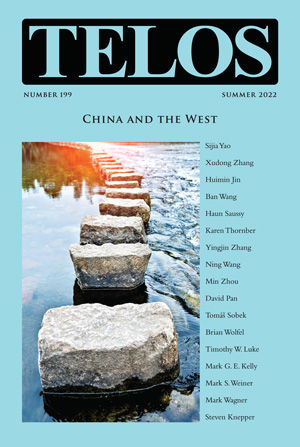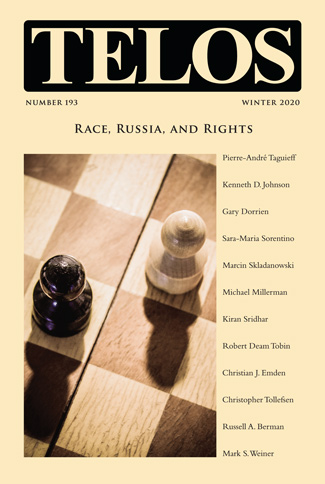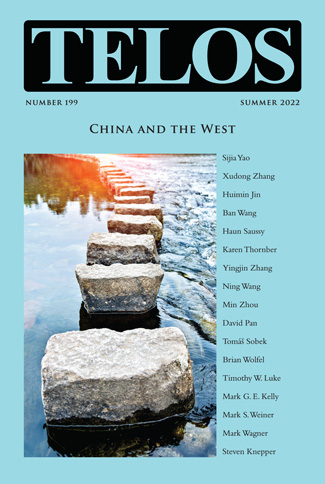 China has been intensively engaging with the West for over a century in its attempts to develop economic, political, and military power. At first limiting itself to appropriating Western technology, Chinese intellectuals eventually began to assimilate Western culture, literature, and ideas comprehensively, though of course doing so in a way that integrated them into their own cultural and political traditions. Its brand of communism, for instance, combines Western Marxism with forms of governance shaped by the long dynastic era of Chinese history. The Chinese assimilation of Western traditions establishes a basic openness to the West while also providing strategies for dealing with the West in times of conflict. On the one hand, China’s economic and political rise has been built upon a history of admiration for the West and the consequent ability to emulate Western practices. On the other hand, this intimate knowledge of the West has allowed China to take advantage of Western prejudices in order to undermine its structures, exploiting for instance the norms of free trade in a way that has undermined those very norms.
China has been intensively engaging with the West for over a century in its attempts to develop economic, political, and military power. At first limiting itself to appropriating Western technology, Chinese intellectuals eventually began to assimilate Western culture, literature, and ideas comprehensively, though of course doing so in a way that integrated them into their own cultural and political traditions. Its brand of communism, for instance, combines Western Marxism with forms of governance shaped by the long dynastic era of Chinese history. The Chinese assimilation of Western traditions establishes a basic openness to the West while also providing strategies for dealing with the West in times of conflict. On the one hand, China’s economic and political rise has been built upon a history of admiration for the West and the consequent ability to emulate Western practices. On the other hand, this intimate knowledge of the West has allowed China to take advantage of Western prejudices in order to undermine its structures, exploiting for instance the norms of free trade in a way that has undermined those very norms.
|
In today’s episode of the Telos Press Podcast, David Pan talks with Sijia Yao about her article “Third Term Comparison,” from Telos 199 (Summer 2022). An excerpt of the article appears here. In their conversation they discuss the difference between world literature and comparative literature, as well as the methodological advantages of comparison; the pervasiveness of biases in both Chinese and Western discourses about the other, and how these biases should be approached; the difference between a binary comparison and a third term comparison; how one can do a third term comparison; and how a third term comparison of D. H. Lawrence and Eileen Chang avoids the binary opposition between China and the West. If your university has an online subscription to Telos, you can read the full article at the Telos Online website. For non-subscribers, learn how your university can begin a subscription to Telos at our library recommendation page. Print copies of Telos 199 are available for purchase in our online store. In today’s episode of the Telos Press Podcast, David Pan talks with Karen Thornber about her article “Decentering the ‘West’ and ‘China’ in China–West Comparison,” from Telos 199 (Summer 2022). An excerpt of the article appears here. In their conversation they discuss the inherent pitfalls of the project of literary comparison, and how these pitfalls can be avoided; what it means to “decenter” the “West” and “China,” and how the process of decentering relates to the process of centering; whether the process of decentering involves the recognition of alternative imperial (or nation-based) centers and in a sense a re-establishing of the paradigm of centering; how the focus on decentering relates to the center-periphery paradigm in the production and dissemination of national literatures; how the transnational approach affects our consideration of problems such as discrimination, healthcare, ecological degradation, and climate change; and how the political nature of the opposition of China and the West affects the study of literature. If your university has an online subscription to Telos, you can read the full article at the Telos Online website. For non-subscribers, learn how your university can begin a subscription to Telos at our library recommendation page. Print copies of Telos 199 are available for purchase in our online store. In today’s episode of the Telos Press Podcast, David Pan talks with Ban Wang about his article “The Clash of Civilization and World Community: The West and China,” from Telos 199 (Summer 2022). An excerpt of the article appears here. In their conversation they discuss whether it still makes sense to speak of distinct human cultures; if the very ideas of China and the West need to be discarded, or, if not, what the basis of such distinctions would be and why they persist; whether there is a human commonality that lies below and beyond age-old cultural norms, and if so what is its content and what forms does it take; how both Chinese and Western forms of universalism have converged to form a cosmopolitan unity; how multiculturalism and identity politics have undermined cross-cultural interaction and a universalist vision; and what alternatives there are for affirming both universalism and local culture. If your university has an online subscription to Telos, you can read the full article at the Telos Online website. For non-subscribers, learn how your university can begin a subscription to Telos at our library recommendation page. Print copies of Telos 199 are available for purchase in our online store.
Telos 199 (Summer 2022): China and the West is now available for purchase in our store. Individual subscriptions to Telos are also available in both print and online formats.
It would be a mistake, though, to see China and the West as polar opposites or competing civilizations, separated by their opposing political interests on the one hand and by the history of each of their cultural traditions on the other hand. Even if they had separate long histories, the recent past has seen many more opportunities for interaction and orientation around common projects and problems. Moreover, since the past is always a projection from out of the present, the idea of a clash of civilizations is not a legacy but a project. An alternative endeavor would be to conceive of the relationship between China and the West as existing within a larger totality. The definition of such a totality must occur within a particular perspective, however, and therein lies the problem. China and the West are clearly competing to define the framework of global order. Consequently, any attempt to consider the relationship between the two must look to the vision of universality that each side is trying to establish against the other. This issue of Telos considers a variety of ways of defining the overarching perspective from which the comparison between China and the West makes sense. |
||||
|
Telos Press Publishing · PO Box 811 · Candor, NY 13743 · Phone: 212-228-6479 Privacy Policy · Data Protection Copyright © 2025 Telos Press Publishing · All Rights Reserved |
||||




